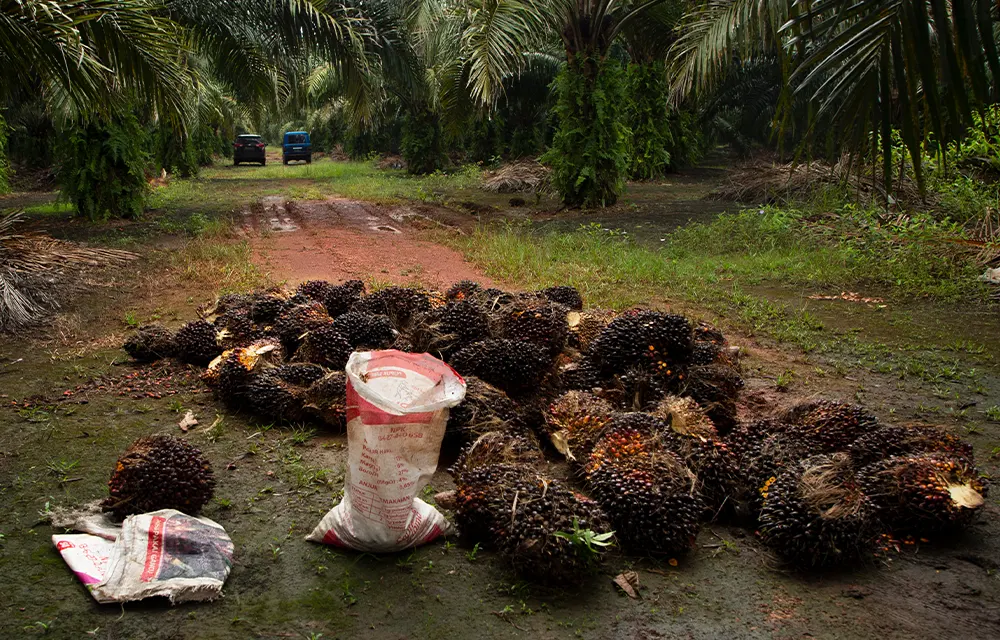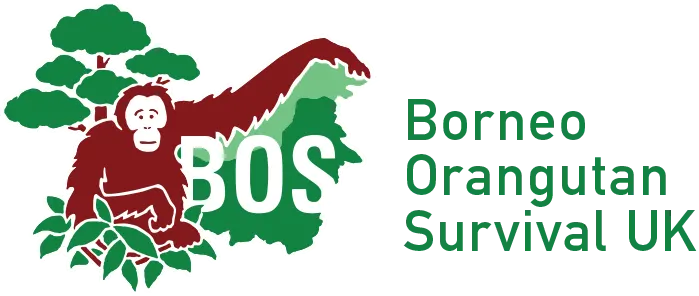PALM OIL
© Cara Macnally
125 American Football fields per hour
1 orangutan every 7 hours
The Borneo Orangutan Survival (BOS) Foundation sees the result of the unsustainable palm oil industry expansion daily, and we know that the conservation of orangutan habitat is crucial to the survival of the series.
What is palm oil?

© Cara Macnally
Palm Oil Fruit
Palm oil is the world’s most popular vegetable oil and comes from the fruit of the oil palm Elaeis guineensis. It is used in many processed foods, including ice cream, chocolate, chips, cereals, frozen foods, margarine, baked goods, and fruit juice.
Palm oil is also used widely in personal care, cosmetic and household products, including soap, toothpaste, shampoo, cosmetics, laundry powders and detergents. And it is used as a raw material for biofuels.
What is sustainable palm oil?
About 20% of the globally produced palm oil is now ‘Certified Sustainable Palm Oil’ (CSPO), which means that the oil has been produced according to seven principles:
- Behave ethically and transparently
- Operate legally and respect rights
- Optimise productivity, efficiency, positive impacts and resilience
- Respect community and human rights and deliver benefits
- Support smallholder inclusion
- Respect workers’ rights and conditions
- Protect, conserve and enhance ecosystems and the environment
CSPO can be sold via one of four different supply chains:
- Identity-preserved (IP) CSPO can be traced back to one certified supply base.
- Segregated (SG) CSPO can be traced back to several certified supply bases.
- Mass Balance (MB) CSPO is mixed with ordinary palm oil throughout the supply chain.
- Book and Claim (BC) CSPO is a certificate trading system. Manufacturers and retailers can buy credits from RSPO-certified growers, crushers, and independent smallholders, but continue to buy non-certified palm oil. (RSPO)
Due to the growing awareness within the general public, increasing pressure has been applied to corporations, with the result that in recent years a number of major retailers and manufacturers are now committed to buying CSPO. However, globally there are still many brands moving too slow or even going backwards.

Roundtable on Sustainable Palm Oil
We acknowledge that the shift to sustainable production and the Roundtable on Sustainable Palm Oil (RSPO) certification process is not without its issues. However, we believe it remains the most acceptable solution currently available.
What you can do to help

Contact manufacturers directly and ask why they are using palm oil and if it’s CSPO.
Check the ingredients – if the product contains palm oil, check to see if it has the CSPO logo or contact the manufacturer to get details on the oil’s source. If it’s not CSPO, seek an alternative product and let the manufacturer know why you’ve chosen not to buy the product.
Letters, protest postcards, and petitions all play a part in informing the manufacturers and government that the community wants change.
Inform your family, friends, and colleagues of the issue, and have them sign our Palm Oil Pledge.


